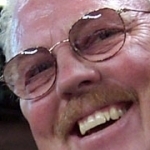SleepingUgly wrote:How could correcting your deviated septum not help you breathe better? No one responsible does radical turbinectomies anymore. How big are your turbinates that she feels that alone will make a difference in your breathing, and how straight is your deviated septum that a septoplasty won't make any difference? Did she mention that turbinates often have to be redone?
I bought this hand-held digital recorder at Walmart and I record important conversations with doctors now.
P.S. The ENT read your upper GI/endoscopy?!
SleepingUgly, My understanding about all of this is about where my understanding of sleep apnea was 4 months ago. I'm still very much a CPAP newbie at the very beginning of the learning curve. Right now I am trying to struggle with dialing-in my therapy one night at a time. This is the first week my AHI has been under 5 most nights. The mental fog from years of oxygen depravation is just beginning to lift enough that I can see some light at the end of the tunnel. Right now successes are happening night at a time.
I had a bad feeling about the first ENT doc and I have a good feeling about this doc. I saw concern and compassion in the way she reacted with my family after my grandson's surgery. Today she spent a lot of time studying every record I brought, especially my endoscopy and upper GI results. (There were a lot of people in the waiting room, and I'm sure that upset her office staff.) Regardless of anything else, I am comfortable with this doc and trust her to not mess me up.
After she examined my throat, we talked about what acid reflux / GERD has been doing to my larynx and upper trachea, and about how the CPAP pressure seems to be helping it recover a little. She told me to raise the head of the bed. Then we talked about yesterday's follow-up with the Gastrointerologist and his recommemdation to loose 80 pounds instead of having surgery for my hiatal hernia. Turns out the guy pretty much just does endoscopies and colonoscopies. She got me to remember that I was diagnosed with a hiatal hernia and GERD in my early 30s when I was skinny, so loosing weight might not solve the problem. She said I need a 2nd opinion from a surgeon who actually does that kind of operation.
While she was reading my sleep study and ResScan report she started interviewing my wife about when I started snoring. Then she got my wife to remember when I also started having apneas (more than 20 years ago). She was sharp enough to figure out my sleep study pressure was 6 and my ResScan report showed 8. She even asked how my visit last month with a neurologist / sleep doc went. (He told me to change my pressure to 10, but that caused centrals so I changed i back to 8.)
She said my turbinates are pretty large. I know that because I was confusing the word turbinates with airways and thought she was about to say I don't need surgery. But she corrected me by explaining my large turbinates are making it hard for me to breathe through my nose. She pointed out something on a deeper scan on the film that she could also open-up that would make me breathe even better. But she advised me the risk of unwanted side effects of doing that deeper surgery were greater. My wife gets a lot of bloody noses. And I already spray stuff up my nose a couple of times a day. The decision was easy. If this surgery offers a good chance of being able to breathe through my nose without having to spray stuff in it every day, I want to do it.
Much of what she said in that hour confused me. I could easily be using the wrong terms. Even if I am using the right terms, I could be using them in the wrong context. She probably never used the word radical, but she did give me two choices about the level of surgery. I figure I will have plenty of time between now and the 26th to research what is going to happen to me. (Or perhaps even change my mind). In the week before my knee replacement surgery I must have watched the videos on you tube a dozen times. I'll probably do the same before this surgery.
As far as my nose goes, it got broke in my very first fist fight in grade school. It's always been a little crooked and the carteledge hangs down into the left nostril. I always thought that was called a deviated septum, I could easily be wrong. Regardless, the doc showed me that it is not restricting my breathing. Sure it was sore my first few nights on CPAP. And it's sore again right now from a self inflicted scratch. If I were 40 years younger, I would consider having my crooked nose and my crooked teeth straightened. Right now it doesn't bother me any more than not shaving on Saturday does.










